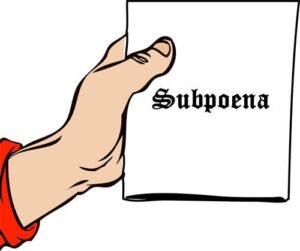 By Haley Ferise, Kathryn Brown, and Gerald L. Maatman, Jr.
By Haley Ferise, Kathryn Brown, and Gerald L. Maatman, Jr.
Duane Morris Takeaways: On March 26, 2024, in EEOC v. Ferrellgas LP, No. 23-1719 (6th Cir. Mar. 26, 2024), the Sixth Circuit affirmed the decision of the U.S. District Court for the Eastern District of Michigan to enforce an EEOC subpoena over an employer’s objections. Although the employer raised both procedural and substantive grounds to challenge the pre-lawsuit subpoena, but both the District Court and the Sixth Circuit rejected those arguments. The ruling ought to be a required read for corporate counsel facing EEOC subpoenas issued as part of pre-lawsuit administrative investigations.
Case Background
April Wells, a Black woman, was a driver for a propane distribution company. She alleged in a discrimination charge filed with the Equal Employment Opportunity Commission that she was subjected to sex discrimination based on (i) her over qualification for the position for which she was hired as compared to that for which she applied, (ii) her compensation that was allegedly lower than that of her male counterparts, and (iii) her termination. She later amended the complaint to include race discrimination claims.
The EEOC began its investigation of Wells’ claims by sending the company two requests for information (RFIs). The employer refused to fully respond to the RFIs on grounds that the scope was overbroad. As is its usual approach, in October 2022, the EEOC issued a subpoena for information the company’s hiring practices. The company objected that the subpoena was unsigned, overly broad, unduly burdensome, and not relevant to the matters arising from the charge. A month later, the EEOC sent a second subpoena, in response to which the employer reiterated its objections.
In December 2022, the EEOC applied for an order to show cause as to why the subpoena should not be enforced, which was granted with a deadline of February 24, 2023. The company responded that (i) the EEOC improperly served the subpoena on the wrong corporate entity and therefore the company had not forfeited its right to challenge the subpoena, (ii) the EEOC could not show the relevance of its subpoena, and (iii) gathering and producing the information sought would be “unduly burdensome.” Id. at 4. The District Court rejected all of the company’s arguments, and it subsequently appealed.
The Sixth Circuit Decision
On appeal, the Sixth Circuit affirmed.
On appeal, the employer raised a new issue of improper service, claiming that the EEOC was required to mail the subpoena to the company itself or utilize another method enumerated in the National Labor Relations Act (NLRA), as the EEOC is authorized to do under Title VII. The Sixth Circuit found that, after directing the EEOC to communicate with its defense counsel, the company could not defeat service via its outside counsel that complied with its own request and that the company’s strict interpretation of the NLRA was erroneously narrow.
In response to the company’s argument that EEOC’s addressing its subpoena to the wrong corporate entity rendered the subpoena invalid, the Sixth Circuit ruled that such an error did not prevent the employer from raising its objections sooner and that the error was harmless, thereby not “preclud[ing] the district court from enforcing the subpoena.” Id.at 7.
At the same time, the Sixth Circuit rejected the EEOC’s argument that the employer had forfeited the right to object to the subpoena because of the company’s allegations the “the EEOC … failed to properly serve a facially valid subpoena.” Therefore, it addressed the company’s substantive objections. The Sixth Circuit reasoned that the District Court did not “abuse its discretion in rejecting” the employer’s arguments that the subpoena was “overbroad and unduly burdensome.” Id. at 11-12. The Sixth Circuit explained that Wells’ charge of discrimination did in fact concern hiring practices in light of her allegations related to discriminatory remarks in the interview process and that, even if the charge did not directly concern hiring practices, information about hiring processes “could cast light on whether [the employer] discriminated against other job applicants.” Id. at 12-13.
Finally, the Sixth Circuit agreed with the District Court that the company did not meet its burden in demonstrating that compliance with the subpoena presented an undue hardship.
Implications Of The Decision
Employers facing administrative subpoenas from the EEOC should be aware that clerical errors or even questionable service likely will not be sufficient to defeat the subpoenas. A better practice is to raise substantive objections to such subpoenas in a timely and formal manner.
